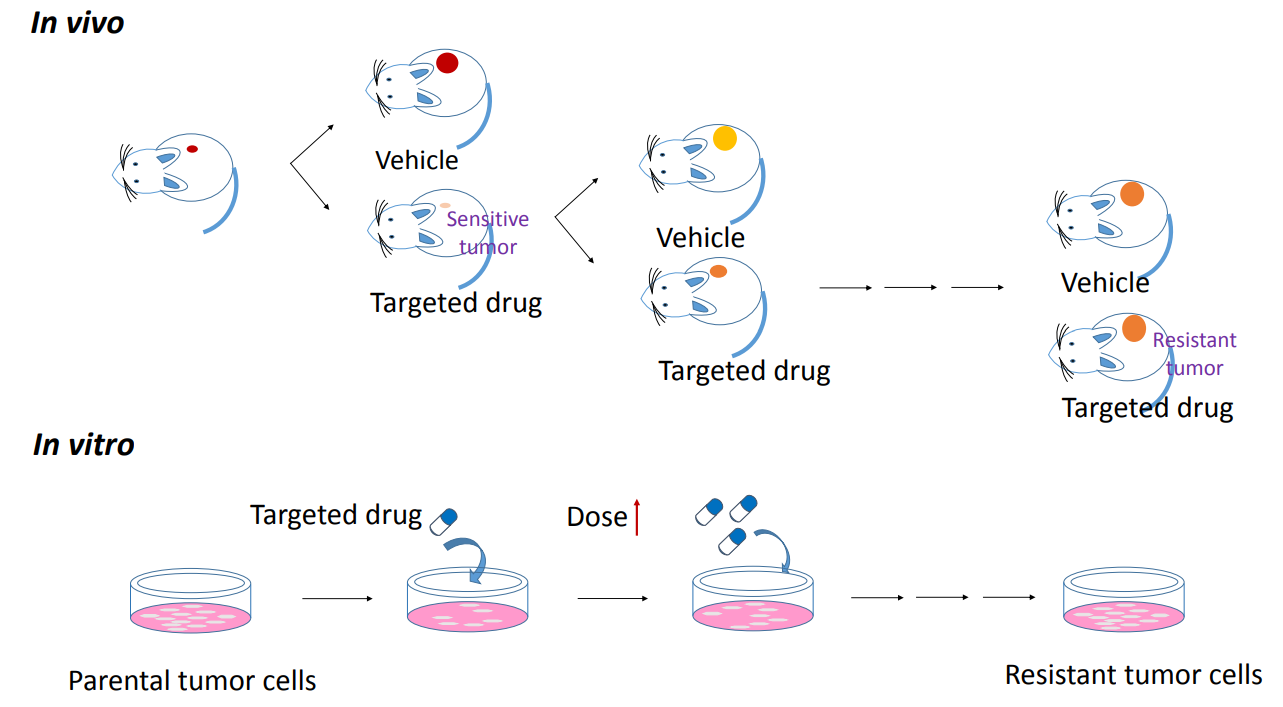Developing drug-induced resistant tumor models for efficacy evaluation of next-generation anticancer therapies

The therapeutic landscape of cancer has been transformed over the last few decades. Our understanding of cancer and its therapeutic approach has improved greatly due to advanced cancer biology, functional imaging and next–generation sequencing. One of the key challenges in cancer therapy is how to effectively kill cancer cells while leaving normal cells intact. As specific oncogenic drivers have been successfully identified, targeted treatments have achieved great success in clinical practice. However, acquired drug resistance remains the major barrier to sustained success of targeted cancer therapy. Those patients who initially respond well to targeted therapies eventually become resistant to the treatments. Uncovering the underlying mechanism would help to develop novel therapies that overcome the drug resistance.
To mimic the clinical resistance after long-term drug treatment, we established a panel of drug-induced resistant tumor models by continuous dosing of targeted drugs to tumor-bearing mice or cancer cell lines, covering a series of first-line targeted drugs including Sotorasib, Palbociclib, Ibrutinib, Capmatinib, Fulvestrant, Tamoxifen and T-DM1. Resistant models were derived from sensitive ones harboring specific oncogenic drivers. After treated with targeted drugs and passaged several times, resistant models exhibited stable resistance phenotype. Given that target gene mutation, alternative pathway activation or tumor microenvironment evolution could promote therapy resistance and cancer progression, we performed transcript and protein analysis to explore the molecular mechanism, and evaluated the potential therapeutic strategies overcoming drug resistance in the established models. Taken together, drug-induced resistant tumor models provide a promising opportunity to the better understanding of drug resistance mechanisms and to the accelerated development of next-generation anticancer agents.

4 Drug resistant tumor models_6009
Related Content
High-dimensional (HD) flow cytometry allows researchers to perform deep phenotyping of immune cells at the single cell level with increased...
VIEW RESOURCEWe offer an extensive panel of cutting-edge immune profiling and biomarker discovery services to support: Target discovery and validation Drug...
VIEW RESOURCE
